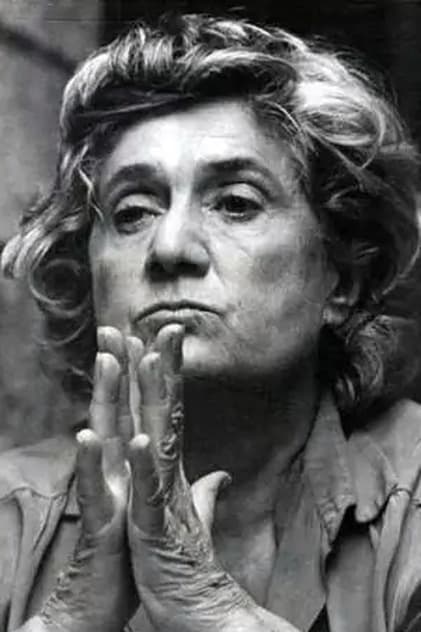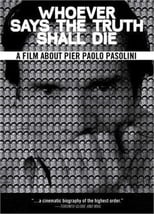

Maria Antonietta Macciocchi
Born: July 23, 1922
Died: April 15, 2007
in Isola del Liri, Lazio, Italy
Died: April 15, 2007
in Isola del Liri, Lazio, Italy
Maria Antonietta Macciocchi (23 July 1922 – 15 April 2007) was an Italian journalist, writer, feminist and politician, elected to the Italian Parliament in 1968 as an Italian Communist Party candidate and to the European Parliament in 1979 as a candidate of the Radical Party.
Macciocchi was born in Isola del Liri, the child of anti-fascists. She joined the underground Italian Communist Party (PCI) during the German occupation of Rome. In 1950 she became editor of the party's women's magazine Vie Nuove. Then she edited a feminist magazine financed by the PCI, Noi donne. She joined l'Unità, the paper founded by Antonio Gramsci, becoming their foreign correspondent in Algiers and Paris. In the 1960s she lectured at Vincennes University France, and her book Pour Gramsci was credited with introducing Gramsci's thought to French intellectuals.
Returning to Italy in 1968 to stand in the general election as a candidate for Naples, she kept up a correspondence with Louis Althusser about both working-class conditions and local party management. Though elected, her publication of the correspondence helped to ensure that the PCI did not put her forward for re-election in 1972. She travelled to China for l'Unità, praising the Cultural Revolution in the resultant book, Dalla Cina: dopo la rivoluzione culturale. In 1977 she was expelled from the PCI for supporting Maoists in Bologna.
In 1979 she was elected Member of the European Parliament (MEP) for the Radical Party.
Macciocchi alternated work as an MEP to that of a journalist, writing for major newspapers such as Corriere della Sera, Le Monde and El Pais articles from the most diverse parts of the world, from Cambodia to Iran and Jerusalem. In 1992, the French President François Mitterrand awarded her the Legion of Honor. In the same year, she met Pope John Paul II and was fascinated by his charismatic personality. She wrote about the Pope in "Le donne secondo Wojtyla" (Women according to Wojtyla), an unexpected book that aroused more controversy for her "conversion" from admirer of Mao Zedong to admirer of the Pope.
In the 1990s Macciocchi lessened her journalistic activities in order to concentrate on book writing. She published works devoted to the history of Naples at the end of the 1700s and the events of the Neapolitan Republic. In 1993 she published 'Cara Eleonora' dedicated to Eleonora Fonseca Pimentel, and in 1998 came 'L'amante della rivoluzione', on the figure of Luisa Sanfelice.
In the European elections of 1994 Macciocchi was a candidate for parliament in the lists of the Patto Segni, but was not elected.
Source: Article "Maria Antonietta Macciocchi" from Wikipedia in English, licensed under CC-BY-SA 3.0.
Macciocchi was born in Isola del Liri, the child of anti-fascists. She joined the underground Italian Communist Party (PCI) during the German occupation of Rome. In 1950 she became editor of the party's women's magazine Vie Nuove. Then she edited a feminist magazine financed by the PCI, Noi donne. She joined l'Unità, the paper founded by Antonio Gramsci, becoming their foreign correspondent in Algiers and Paris. In the 1960s she lectured at Vincennes University France, and her book Pour Gramsci was credited with introducing Gramsci's thought to French intellectuals.
Returning to Italy in 1968 to stand in the general election as a candidate for Naples, she kept up a correspondence with Louis Althusser about both working-class conditions and local party management. Though elected, her publication of the correspondence helped to ensure that the PCI did not put her forward for re-election in 1972. She travelled to China for l'Unità, praising the Cultural Revolution in the resultant book, Dalla Cina: dopo la rivoluzione culturale. In 1977 she was expelled from the PCI for supporting Maoists in Bologna.
In 1979 she was elected Member of the European Parliament (MEP) for the Radical Party.
Macciocchi alternated work as an MEP to that of a journalist, writing for major newspapers such as Corriere della Sera, Le Monde and El Pais articles from the most diverse parts of the world, from Cambodia to Iran and Jerusalem. In 1992, the French President François Mitterrand awarded her the Legion of Honor. In the same year, she met Pope John Paul II and was fascinated by his charismatic personality. She wrote about the Pope in "Le donne secondo Wojtyla" (Women according to Wojtyla), an unexpected book that aroused more controversy for her "conversion" from admirer of Mao Zedong to admirer of the Pope.
In the 1990s Macciocchi lessened her journalistic activities in order to concentrate on book writing. She published works devoted to the history of Naples at the end of the 1700s and the events of the Neapolitan Republic. In 1993 she published 'Cara Eleonora' dedicated to Eleonora Fonseca Pimentel, and in 1998 came 'L'amante della rivoluzione', on the figure of Luisa Sanfelice.
In the European elections of 1994 Macciocchi was a candidate for parliament in the lists of the Patto Segni, but was not elected.
Source: Article "Maria Antonietta Macciocchi" from Wikipedia in English, licensed under CC-BY-SA 3.0.
Movies for Maria Antonietta Macciocchi...

Title: Whoever Says the Truth Shall Die
Character: Self - writer
Released: February 28, 1981
Type: Movie
Philo Bregstein tells us this film looks at Pasolini's life and art to explain why he died. The film traces Pasolini's life chronologically - family roots, hiding during World War II, teaching, moving to Rome, being arrested and acquitted many times, publishing poems, getting into film, being provocative, and being murdered. Interviews with Alberto Moravia, Laura Betti, Maria Antonietta Macciocch, and Bernard Bertolucci are inter-cut with readings of Pasolini's poems and with clips from four films - primarily the Gospel According to St. Matthew - to illustrate his changing ideas and points of view. Bregstein makes a case for Pasolini's being lynched.


Title: Apostrophes
Character: Self
Released: January 10, 1975
Type: TV
Apostrophes was a live, weekly, literary, prime-time, talk show on French television created and hosted by Bernard Pivot. It ran for fifteen years (724 episodes) from January 10, 1975, to June 22, 1990, and was one of the most watched shows on French television (around 6 million regular viewers). It was broadcast on Friday nights on the channel France 2 (which was called "Antenne 2" from 1975 to 1992). The hourlong show was devoted to books, authors and literature. The format varied between one-on-one interviews with a single author and open discussions between four or five authors.
